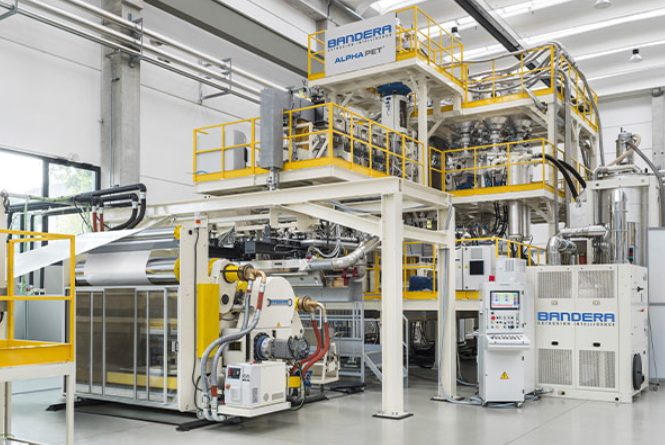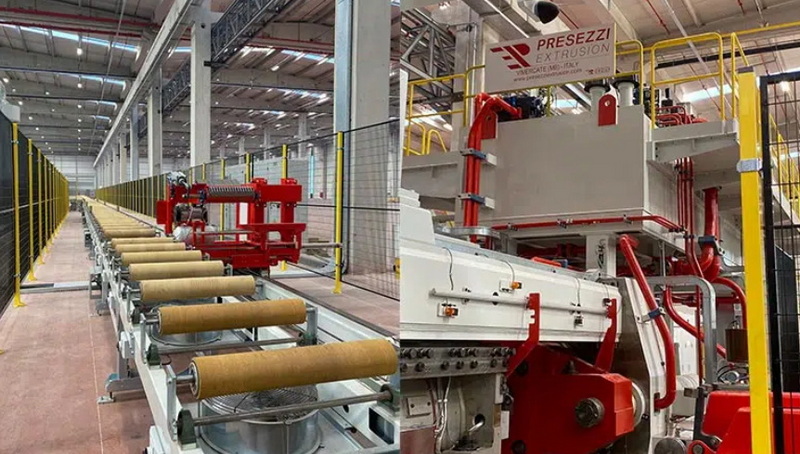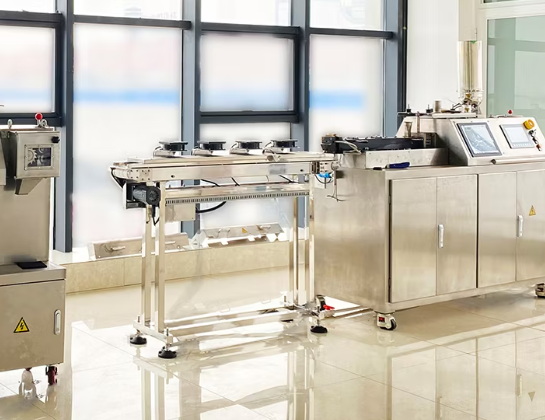Content Menu
● Introduction to Soya Food Extrusion Equipment
>> Basic Components of Soya Extruders
● Types of Soya Extruders
● Pricing of Soya Food Extrusion Equipment in China
>> Factors Influencing Pricing
● Suppliers of Soya Food Extrusion Equipment in China
● Market Trends and Advancements
>> Market Trends
>> Advancements in Technology
● Applications of Soya Food Extrusion Equipment
● Challenges in the Soya Food Extrusion Process
● Future of Soya Food Extrusion Equipment in China
● Conclusion
● Frequently Asked Questions
>> 1. What is the typical price range for basic soya extruders in China?
>> 2. What factors influence the pricing of soya food extrusion equipment?
>> 3. What types of soya extruders are available in China?
>> 4. How do I choose a reliable supplier of soya food extrusion equipment in China?
>> 5. What are the applications of soya food extrusion equipment?
The soya food extrusion equipment market in China has experienced significant growth due to the increasing demand for plant-based protein products. These machines are crucial for transforming soybeans into various textured soy products, such as soy chunks, nuggets, and meat analogues. In this article, we will delve into the average prices of soya food extrusion equipment in China, explore the types of equipment available, and discuss factors influencing their pricing.

Introduction to Soya Food Extrusion Equipment
Soya food extrusion equipment is designed to process soybeans into a variety of products, including textured soy protein (TSP), textured vegetable protein (TVP), and soy meat analogues. These machines use high-temperature and high-pressure conditions to transform soy flour into fibrous structures that mimic the texture of meat, making them ideal for vegetarian and vegan diets.
Basic Components of Soya Extruders
A typical soya extruder consists of three main components:
1. Barrel: This is where the soy flour is heated and pressurized.
2. Screw: The screw transports and compresses the soy flour, applying mechanical and thermal energy.
3. Die: The die shapes the extruded product into the desired form, such as chunks or nuggets.
Types of Soya Extruders
Soya extruders can be categorized based on their design and functionality:
- Single-Screw Extruders: These are simpler and less expensive, often used for basic extrusion processes.
- Twin-Screw Extruders: More advanced, offering better control over temperature and pressure, and higher production capacities.
Pricing of Soya Food Extrusion Equipment in China
The prices of soya food extrusion equipment in China vary widely depending on the type, capacity, and features of the machine. Here are some general price ranges:
- Basic Models: These can start from around $5,000 to $15,000 for small-scale operations with capacities of 100 kg/hour to 300 kg/hour.
- Mid-Range Models: Prices range from $15,000 to $50,000 for machines with capacities between 300 kg/hour and 1,000 kg/hour.
- High-End Models: These can cost $50,000 to over $100,000 for large-scale operations with capacities exceeding 1,000 kg/hour.
Factors Influencing Pricing
Several factors contribute to the pricing of soya food extrusion equipment:
- Capacity: Higher capacity machines are more expensive.
- Automation Level: Machines with automated controls and integrated systems cost more than manual ones.
- Brand and Quality: Reputable brands and high-quality materials increase the price.
- Customization: Specialized designs or custom features can add to the cost.

Suppliers of Soya Food Extrusion Equipment in China
China is home to numerous suppliers of soya food extrusion equipment, offering a wide range of products. Some notable suppliers include:
- Jinan Sunpring Machinery & Equipment Co., Ltd.
- Zhengzhou AG Machinery & Equipment Co., Ltd.
- Henan Yearmega Industry Co., Ltd.
These suppliers provide not only the equipment but also technical support and after-sales services, which are crucial for maintaining the efficiency and longevity of the machines.
Market Trends and Advancements
Market Trends
The market for soya food extrusion equipment in China is driven by consumer demand for healthier and more sustainable food options. The trend towards plant-based diets has increased the demand for textured soy products, leading to growth in the extrusion equipment sector.
Advancements in Technology
Recent advancements in soya food extrusion technology include improved screw designs, enhanced automation systems, and more efficient energy consumption. These advancements have increased production efficiency and reduced operational costs, making the equipment more attractive to manufacturers.
Applications of Soya Food Extrusion Equipment
Soya food extrusion equipment is used to produce a variety of products, including:
- Textured Soy Protein (TSP): Used in meat analogues and vegetarian dishes.
- Textured Vegetable Protein (TVP): Commonly used in chili, tacos, and other dishes.
- Soy Meat Analogues: Mimic the texture of meat, used in sausages, burgers, and more.
These products are not only popular in China but also exported globally, contributing to the country's food processing industry.
Challenges in the Soya Food Extrusion Process
Despite the advancements, there are challenges in the soya food extrusion process:
- Raw Material Quality: The quality of soy flour can affect the final product's texture and taste.
- Energy Consumption: High energy costs can increase operational expenses.
- Maintenance and Repair: Regular maintenance is necessary to prevent equipment downtime.
Addressing these challenges requires careful selection of raw materials, efficient energy management, and regular maintenance of the equipment.
Future of Soya Food Extrusion Equipment in China
The future of soya food extrusion equipment in China looks promising, driven by increasing demand for plant-based products and technological advancements. As consumers become more health-conscious and environmentally aware, the market for textured soy products is expected to grow further. This growth will likely lead to more innovative and efficient extrusion technologies, further expanding the capabilities of china soya food extrusion equipment price supplier.
Conclusion
The average price of soya food extrusion equipment in China varies significantly based on the machine's capacity, features, and supplier. For those looking to invest in this technology, it's crucial to consider the specific needs of their operation and explore options from reputable suppliers like china soya food extrusion equipment price supplier.

Frequently Asked Questions
1. What is the typical price range for basic soya extruders in China?
The typical price range for basic soya extruders in China is between $5,000 and $15,000. These machines are suitable for small-scale operations with capacities ranging from 100 kg/hour to 300 kg/hour.
2. What factors influence the pricing of soya food extrusion equipment?
Pricing is influenced by factors such as capacity, automation level, brand and quality, and customization. Higher capacity machines with advanced automation and high-quality materials tend to be more expensive.
3. What types of soya extruders are available in China?
There are primarily two types of soya extruders available: single-screw extruders and twin-screw extruders. Twin-screw extruders offer better control over temperature and pressure, making them suitable for more complex extrusion processes.
4. How do I choose a reliable supplier of soya food extrusion equipment in China?
Choosing a reliable supplier involves evaluating their reputation, product quality, and after-sales service. It's advisable to visit their facilities and check for certifications like ISO 9001.
5. What are the applications of soya food extrusion equipment?
Soya food extrusion equipment is used to produce a variety of products, including textured soy protein (TSP), textured vegetable protein (TVP), and soy meat analogues. These products are used in vegetarian and vegan diets and can be incorporated into various food products like sausages and burgers.






















